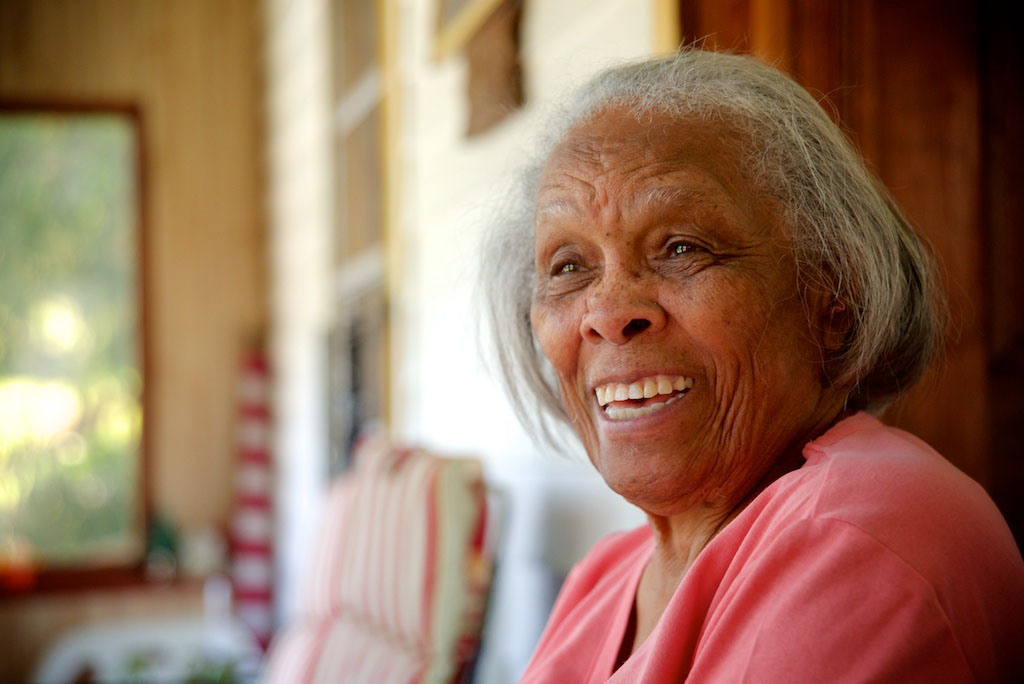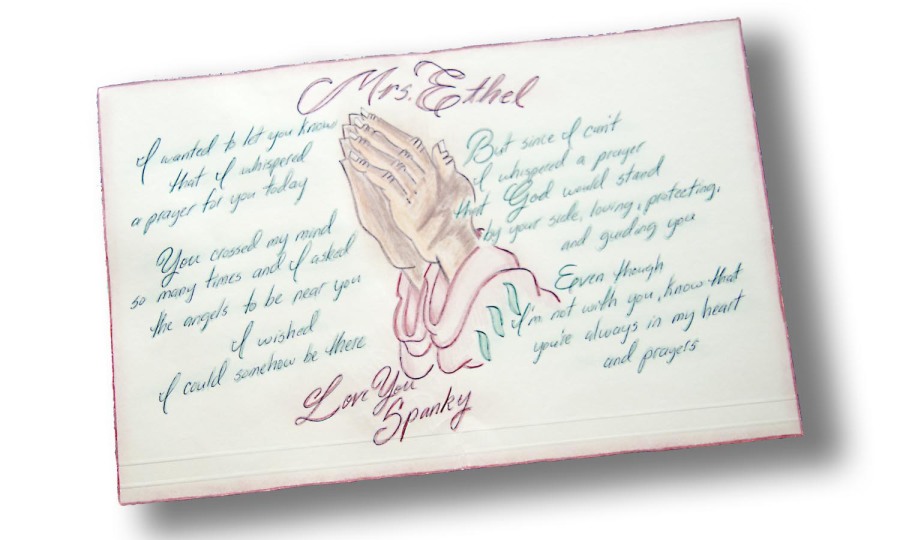“Bless your Heart, Mama loves you”.
The first time I met Ms. Dunugan’s I noticed the Mt. Olive Baptist Church from her window. I felt there was a story about Hope in the air around her and on the street in front of her home. This was her neighborhood. She and her husband had lived in the house since her father (from Hope Hull, Al.) helped them build it in 1949.
Ethel Dunugan lives off of Ishcooda Rd. on a street just down the mountain from many of the old Tennessee Coal and Iron Company mines that employed her husband and many others in the community. As I talk with her and photograph, she is sitting in a chair on her front porch. I am stunned by the amount of history and the strong sense of community that surrounds her. As with many of these discussions I have had about Hope, I am trying to photograph and talk with her. But I am not listening as well as I should. My trite standard conversation starter about Hope begins with a line I have used to explain why I started questioning the meaning of Hope. I tell her about my on-going argument with my family about the word Love. When someone says “I love my car”, I say you can’t love inanimate objects. I say it diminishes the meaning of Love, just as saying “I hope today is a pretty day” diminishes the meaning of Hope. Ms. Dunugan says, “I love this chair. You know what….this chair I’m sittin’ in is memories”. She explains that her daughter had dressed the chair up for a “Celebration of Life” ceremony her family had for her. I stand corrected.
I asked about President Obama’s original campaign slogan of Hope and Change and she said, “It’s something mostly like a wish….you wish you could help make things happen, and make them better. Hope is something that you are wishing for, and includes change”. This is not a wistful passive hoping. Later she says, “I feel like what I wish for and what I hope for, God answers my prayers. Show me and lead me, guide me”. There is a strength, and more of intentional meaning in her wishful Hope that I have not perceived when others have said, “Hope is just a wish”.
We talk about her Gandmother’s influence. She reflects on the old mining community “up here on the mountain”, and how everyone in that area was just one big family. Hearing this about her childhood I sense an unspoken communal Hope. They all took care of each other. We think of that time in our history as hard and dark, and it was. But when she tells me about those days and about sitting in her big Gandmama’s lap, listening to the simple wisdom that she says is still with her today, I can’t help but believe that this is Hope incarnate. Her warm loving memorries of that time are uncomplicated and reassuring to all those she communes with today. The young people that come across the street, from the same church she grew up in, to visit with her on Sunday evenings probbly feel the same sense of Hope and joy she felt in her Grandmama’s lap. She is now the Grandmama. Actually most call her Mama…….. Is this the Hope Obama was talking about?
Mama tells me about writing to some in her community from hard families who have gone to prison. “When they go off like that, there’s always something you can do to try to encourage ‘em. Cause sometimes they get to the point they just don’t want to live no more. Long as they know somebody cares, it’s altogether different. It gives them Hope”. She writes to one “I’ll see you soon son. Bless your heart, Mama loves you!”
Ethel Dunugan: “When you try to do right in life, God’ll let you live a long life”. I have a feeling she may out live me.
(This is a handmade card that a young man named Spanky made for Ms. Dunugan)



No comments yet.